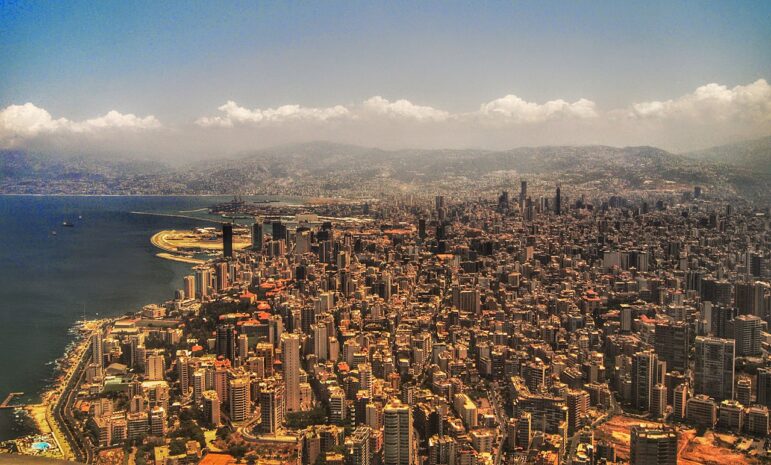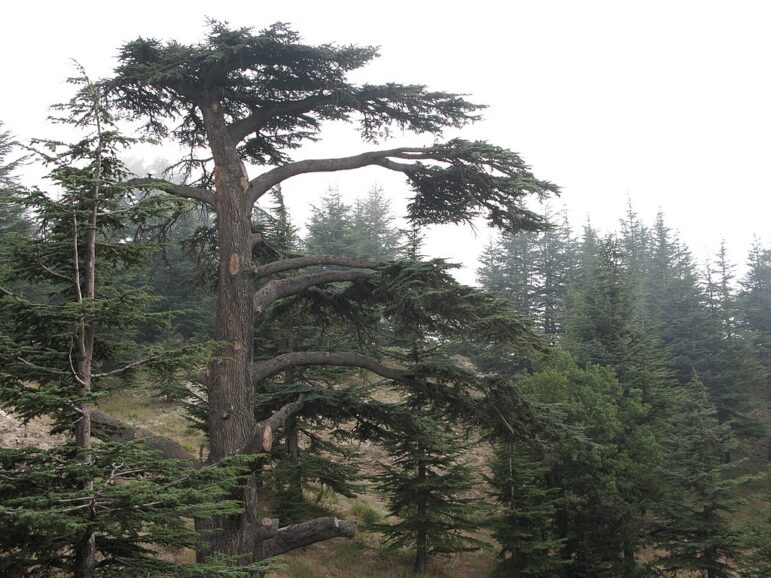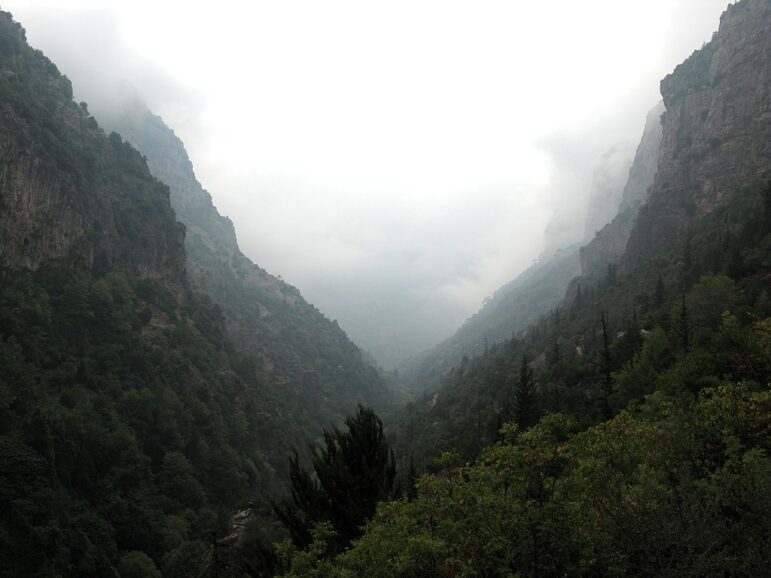
Today’s offering comes to us from J.D. Harlock, a Lebanese-American writer, editor, researcher, and academic based in Beirut, pursuing a doctoral degree at the University of St. Andrews. In addition to their work at Solarpunk Magazine, as a poetry editor, and at Android Press, as an editor, Harlock’s writing has been featured in The Griffith Review, The Cincinatti Review, & New York University’s Library of Arabic Literature. You can find them on LinkedIn, Twitter, Threads, & Instagram.
Since our ancestors worshiped Baal and Bacchus, nature has been sacred to us in Lebanon. As children raised in the sprawls of Beirut, it is our only escape from the relentlessness of Lebanon’s urbanization. As adults forced into cramped corporate spaces, it is our only retreat from the tribulations of the Lebanese grind. Yet the sacredness of the snow-capped mountains, the shores of the Mediterranean Sea, and the cedar forests scattered throughout the Levant have been lost to us in the toxicity of the modern world. Only if our ancient ethos is restored, can we reestablish our relationship with our ecology. Naturalistic Paganism allows Lebanese such an opportunity in a region increasingly polarized by religious extremism exacerbated by the failures of neoliberal capitalism.
The wounds of the civil war have never healed, and our spiritualism has never recovered. It was impossible to return to our shrines now that our religions had turned us against each other.
Youth like me were born in this post-war milieu when neoliberalism was introduced to Lebanon through Western vassals that sought to rapidly industrialize Beirut in hopes of turning it into a regional hub in the vein of the hyper-capitalistic Dubai. Our parents chose to distance us from religion as a result. Many of us grew up without a spiritual identity, withdrawn from social, communal, political, and religious life.

An aerial view of Beirut, Lebanon [marviikad, Wikimedia Commons, CC 2.0]
Even though I lived in the intersection of the Ain el Rimmeh and Furn el Chubback ghettos, my father, like many men of his generation, left Lebanon to work throughout the Middle East to afford me a prestigious education at an expensive private school in hopes of improving our social fortunes. Attending the International College, one of the most prestigious institutions in the region, I rubbed shoulder with the children of the sociopolitical and financial Arab elite who would inevitably take the rein of the country one day. Most of them who claimed to be followers of Islam or Christianity never internalized any of the wisdom passed down from the Abrahamic faiths. Since Lebanon is divided along sectarian lines with seats allotted according to sect, often any religious views espoused were heavy-handed justification for transgressions on the rights of minorities and perceived enemies that only served to empower their material positions within the country. Now, we view any form of religious expression with apprehension and religiosity as suspect. A new way to realign ourselves with the spiritual world is required.
Naturalistic Paganism offered me such a path, integrating a reverence for our ecology through our pre-Abrahamic religions with a rational understanding of the universe. As a form of cultural reclamation, I can finally explore the intersection of my identities in the Levant outside of what was imposed by the local, regional, and international systems of oppression. In this sense, Naturalistic Paganism is not a return to the past but a restoration of our heritage in a modern framework.

Cedrus libani, known as the Cedar of Lebanon, a species of cedar native to the mountains of the Eastern Mediterranean. Slopes of Mount Lebanon. Kadisha Valley. [Vyacheslav Argenberg, Wikimedia Commons, CC 4.0]
Reorienting my religious attitudes toward personal spirituality with the world around us aligns me with a transnational community we have all been isolated from through sectarian polarization. Transitioning into Naturalistic Paganism was not disorienting, as it is a natural outgrowth of Lebanese social mores and ethics. Our moral code has always been built on respect for all life. We strive for, if we have never been allowed to fully realize, the equality of all humans of creeds and colors, and we recognize that individual actions have consequences. I resonated with this perspective in a country still reeling from the scars of civil war, finding common ground with people from all over the world that transcends local divisions.
Discussion of the traditional monotheistic religions remains taboo even though the Lebanon Civil War ended more than thirty years ago. Religion as it relates to sociopolitical and economic life across decades of Lebanese history is a subject I yearn to discuss frankly in my writing. In particular, how these cornerstones of our life relate to the environment around us is a pressing concern for me, as I witnessed firsthand how modernization transformed Lebanon over the years into a concrete pit of our systemic failures. Regardless, the current religious climate is not conducive to such public discourse. To draw on religions that have nothing to do with our culture and heritage would lessen its impact as it severs the connection locals could have to my art. Thus, I was compelled to draw from religious sources far older but familiar to us through our primary education, resulting in work that is distinctly Lebanese while not offending the powers that be that could censor and discredit my work. As the painful memories of the Civil War loom large over our lives, the pantheons our ancestors worshipped are intrinsically tied to our spaciology, offering us a framework to engage with controversial matters that Lebanon cannot hope to grapple with.

Kadisha Valley, Lebanon [Vyacheslav Argenberg, Wikimedia Commons, CC 4.0]
Committing to Naturalistic Paganism is not solitary but a contribution to the collective well-being. Each person’s growth enriches the broader community by following practices that emphasize the cyclical nature of life, respect for all living beings, and the interconnectedness of all things. Thus, we can find common ground again in our shared humanity. Embracing Naturalistic Paganism fosters a sense of kinship and purpose among all Lebanese, regardless of their background, allowing for communal healing with a peaceful but powerful resistance against the forces that wish Lebanon to be fragmented.
It was inevitable that the last century in Lebanese history would lead to an irreparable separation from the Abrahamic religions. Spiritually, significant challenges lay ahead for us. Yet, our embrace of new creeds is a testament to our capacity for change. My embrace of Naturalistic Paganism is emblematic of this broader shift in the region. Reimagining Lebanon to honor all its cultures, histories, and traditions, we can move away from dogmatic systems that mean to divide us towards a spirituality reflecting contemporary values and aspirations.
The old world must be done away with so that it can plant the seeds of the new.
The Wild Hunt is not responsible for links to external content.
To join a conversation on this post:
Visit our The Wild Hunt subreddit! Point your favorite browser to https://www.reddit.com/r/The_Wild_Hunt_News/, then click “JOIN”. Make sure to click the bell, too, to be notified of new articles posted to our subreddit.